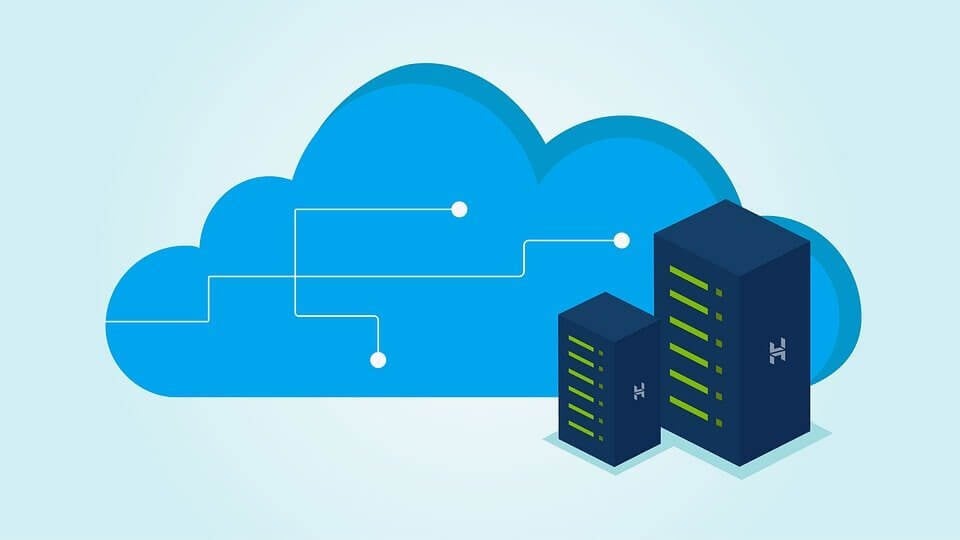Safe, but not completely risk-free
Cloud computing is one of the hottest technology trends these days. From simple storage solutions to complete enterprise applications, a lot of computing is moving to the cloud.
But as our data is increasingly held in remote servers across the world, a question must be asked: is cloud computing really safe?
How exactly is your data held in cloud applications? Can it be accessed by others? What are the security risks of cloud computing? Here is a comprehensive overview.
Cloud Computing 101
Normally, your computer can only perform as well as its hardware lets it. If you want more storage or processing power, you have to upgrade your PC. But with the decreasing costs of internet connectivity came another option – the cloud.
The basic premise of cloud computing is quite simple. Instead of running complex programs and storing files on your machine, you run them on a remote server. This remote server is called the cloud and is responsible for providing you with computing resources through the network.
The most obvious examples of this are cloud storage services like Google Drive or Dropbox. These cloud applications give you a dedicated amount of storage that you can use to keep your own files. As this storage does not come from your PC, these files are safe even if your personal computer gets corrupted or breaks down.
Of course, that is just scratching the basics. Cloud services go much further than just remote storage, offering everything from web hosting to entirely remote applications. Services like Microsoft Azure and Amazon AWS are used by enterprises across the globe to run all kinds of computing applications.
The Advantages of Cloud Computing
There are many benefits of cloud computing vs traditional applications.
The primary advantage is redundancy. Data stored physically on a single personal device can be wiped out due to any technical issue, costing hours of work and important information. The cloud, on the other hand, uses multiple servers spread through various geographical locations making it virtually impossible for the data to just get lost.
The second big benefit is scalability. For enterprise applications, it can be very difficult to acquire more computing resources to handle extra load in traditional setups. It requires making an investment into more hardware capacity that would go unused most of the time.
With cloud computing, applications can request more resources as and when required, paying only for the capacity used. This makes running a scalable app very cost-efficient, not to mention easy to implement.
The Vulnerabilities of Cloud Computing
We have already seen the numerous advantages of cloud computing. From accessibility to redundancy, there are a lot of good points about using a cloud service. At the same time, however, there are a few drawbacks as well.
The principal concern is data security. As your data is held on a publicly accessible server, its security is not in your own hands. The company running the cloud service (and its servers) has complete control over your information.
In a way, it is more secure than a personal computer. A single hardware fault cannot jeopardize your entire data. But at the same time, it also exposes the information to outside threats. A hack that compromises the cloud servers can leak your personal data.
More concerningly, you need to trust the cloud service provider itself to respect your privacy. And in this age of Big Data, that is hardly a given. Tech giants have routinely come under fire for violating the privacy of user data they have access to, making it a risk to store important information on the cloud.
Then there are the security vulnerabilities even cloud services are exposed to. Like any web service, cloud computing can be subject to Distributed-Denial-of-Service (DDoS) attacks that cripple its capabilities. This forces the affected service to go offline, making your application unavailable for an unknown period of time.
Minimizing Risk
Okay, so cloud computing is potentially vulnerable. What then, is the solution? Should you stop using cloud services completely?
Of course not. For all the theoretical security risks inherent in cloud computing, it is practically one of the most secure forms of computing. Thanks to the redundancies put in place on cloud servers, there are very few points of failure.
Data loss or theft from a cloud service requires a catastrophe, instead of a spilled cup of tea that might spell the doom of the information stored on your laptop. It is usually also harder for hackers to break in, as cloud service providers tend to use better security measures than a PC.
Personal computers can also fall prey to ransomware attacks, which lock up your personal data and demand payment in cryptocurrencies to allow you access. Other malware can just corrupt all files outright, which makes cloud computing even more indispensable.
To improve your own data security, encryption can be used. For databases and cloud storage services, encrypt the data on your own system before uploading. For entire applications running off the cloud, try services that allow you to encrypt the information used. That way, even a hack or a data leak poses no risk to your private data.
Is Cloud Computing Secure?
Asking if cloud computing is secure is like asking whether flights are a safe way to travel. Statistically speaking, it’s the safest form there is, though, of course, nothing is completely risk-free.
Cloud computing’s biggest security risks are posed not by hackers or technical faults, but rather by willful mismanagement. The nature of cloud servers makes it very difficult for hackers to get in, and virtually guarantees safety against hardware failures.
The only thing that can compromise data on the cloud is the service provider itself. And while tech giants like Google or Amazon have established themselves as trustworthy companies in this niche, putting all your eggs in one basket is never a good idea.
Simple measures like encrypting your data and trusting cloud service providers with a transparent privacy policy can help secure your files and other information from unwanted access. If you keep your eyes open, it’s easy to mitigate the security risks of cloud computing and enjoy its benefits.










